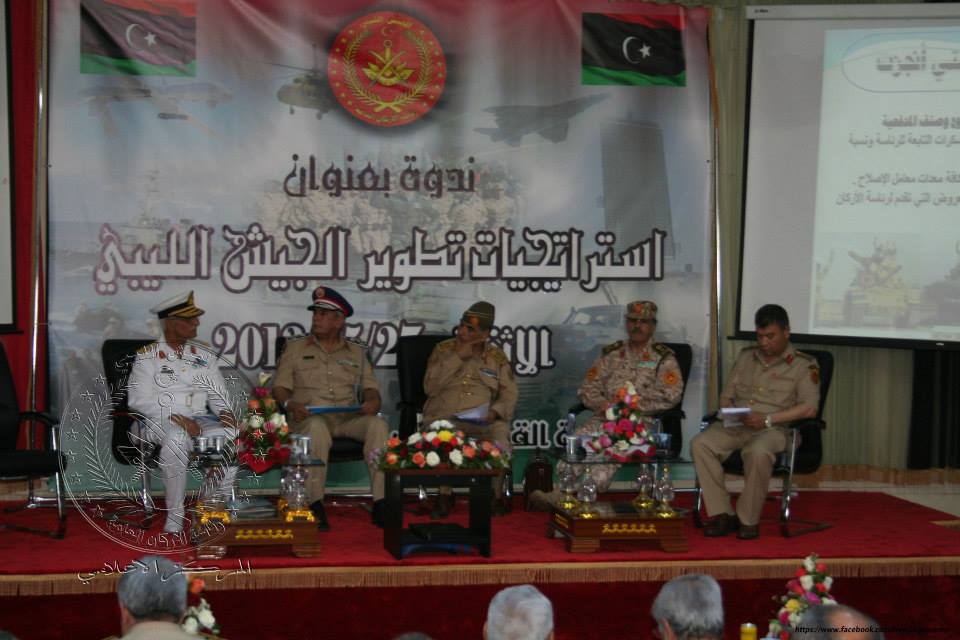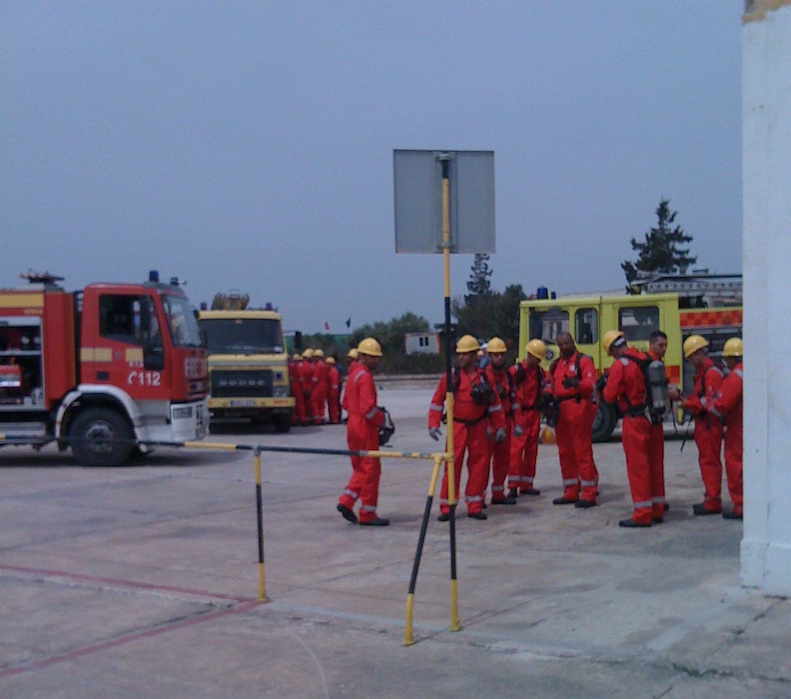By Ahmed Elumami.

Tripoli, 27 May 2013:
A seminar on ‘Strategies for Developing . . .[restrict]the Libyan Army’ was held today at the headquarters of the General Chief of Staff.
It was attended by the Chief of Staff, Yousef Mangoush, and Defense Minister Mohamed Barghathi along with members of Congress’ Defense Committee, the heads of land, sea and air forces, army recruits and a number of civil society organisations.
“Following the 1969 coup and in four decades since, the Libyan army suffered as a result of an organised campaign to weaken it, because that tyrannical regime did not trust in this institution,” Mangoush said at the seminar’s opening.
He focused on the army’s efforts since the foundation of the presidency of the General Staff, during which time, he said, the institution had had to work on two parallel tracks.
The first had been crisis management, with the army working on a variety of tasks such as maintaining security, securing roads and buildings, and resolving conflicts between areas across the country.
The second track was rebuilding the military as an institution after decades of systematic destruction. It was not an easy job.
Heads of staff gave presentations explaining the achievements so far accomplished and presented proposals for improving performance. They also canvassed the challenges that face and impede the rebuilding of the Libyan army.
Projects aimed at rebuilding the armed forces have been made in cooperation with international institutions such as the United Nations, and have been incorporated in a white paper the purpose of which is to develop policies that would ensure that Libya’s national armed forces work under the law, the Constitution and the elected authorities.
“We need this white paper as the basis of a sustainable defence policy for the new Libya. The country requires the reorganisation and restructuring of the armed forces to work on training and rehabilitation of young servicemen who are in tune with the freedom and democracy that is being experienced by Libya today,” Mangoush said.
The armed forces had suffered greatly as a target of the former regime. It was therefore no surprise that there was a synergy between the military and the young volunteers from the revolutionaries, he said. [/restrict]










